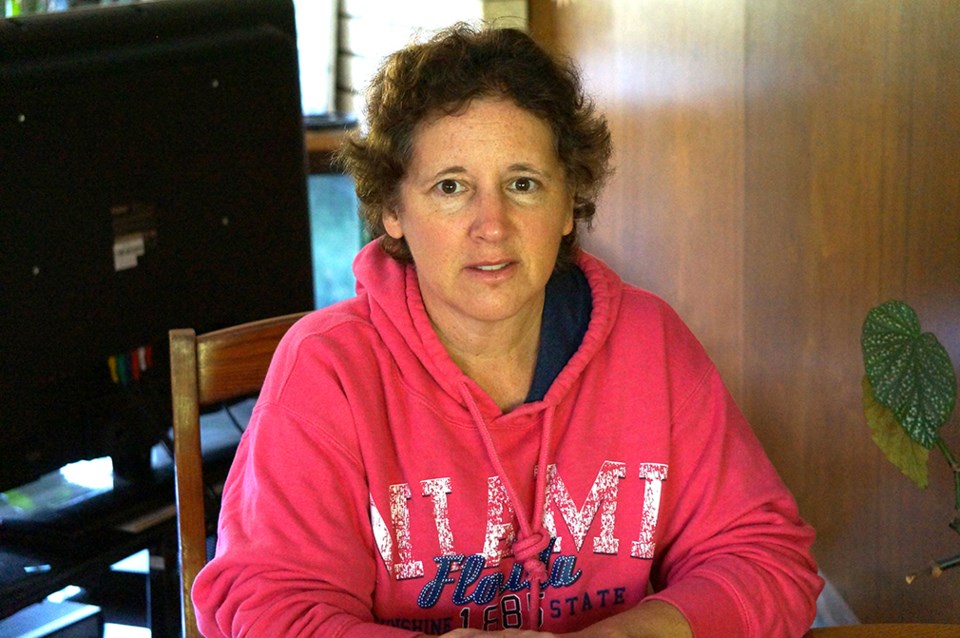Before waking up in hospital, the last thing Patricia McDowell remembers is practising her swing before a slow pitch game with her Squamish team, Gun Show, at Hendrickson ball field on June 13.
The next thing she remembers is waking up wearing a hospital gown on what she thought was the beach in Mexico, with her daughter Natasha MacKellar beside her.
In reality, what McDowell would soon come to learn from MacKellar was that she was in hospital weeks after being hit in the head with a softball while running to first base during a game. She was knocked unconscious and rushed to Squamish and then Lions Gate hospitals.
When MacKellar arrived at the hospital, a doctor asked her if she had a plan if life support decisions had to be made for her mother.
Emergency surgery was done to remove a broken piece from the left side of McDowell’s skull in order to relieve the swelling on her brain. Doctors also repaired her broken eye socket. She remained unconscious and couldn’t breathe on her own for six days.
Recovery has been slow but steady ever since. The bone was put back into her head on July 8. She has been home since July 10.
“Just seeing her progress and her be almost normal again is just amazing,” MacKellar said Monday afternoon while sitting in her mother’s dining room.
Due to her injuries, McDowell moves cautiously and takes time to consider before she speaks – she loses words sometimes, she said.
She still can’t remember what happened to her, so she often glances across at MacKellar, who patiently fills in the missing pieces of the story.
Because of broken vertebrae, McDowell was in a neck brace until last week, she said. And she takes painkillers every day to help ease the pain in her head, she said.
About 450 people suffer a brain injury every day in Canada, according to the Northern Brain Injury Association. This means one person is injured with a traumatic brain injury every three minutes. Of those, tens of thousands every year are partially or permanently disabled, and more than 11,000 die.
McDowell is one of the lucky ones; she should make a full recovery within six months, according to MacKellar.
But there is still a lot of healing and physiotherapy ahead for her.
“I have a ways to go still,” McDowell said, adding that she didn’t understand until this week how long recovery was going to take.
“It still hurts,” she says. “If I do something at home that I shouldn’t be doing or if I push myself too hard, it hurts a lot more.”
McDowell said she will be unable to drive or go back to work at her two jobs – at Furry Creek Golf and Country Club and at the bindery at The Squamish Chief.
Until she is fully recovered, she also won’t be able to be involved in any of the many sports she used to enjoy. McDowell, 52, is usually involved in soccer, curling, volleyball, snowshoeing and slow pitch.
“I have never had a time when I have given up all the sports,” she said. “It is going to be different for me.”
She has played slow pitch for almost 30 years.
McDowell said she will go back to playing ball when she can in the future. “But I will be playing with a helmet on,” she emphasized.
After all she has been through, McDowell said she hopes what will come out of her injury is that helmets will become more commonplace on the ball field.
“I would like to see the league make it a rule that everyone has to wear a helmet,” McDowell said. “They always think it is slow pitch it is casual and slow, that it is not that dangerous.”
Her daughter is already convinced.
“I wear a helmet now,” MacKellar said. “I dug out my old fastball helmet… I got the cobwebs out of it.”



